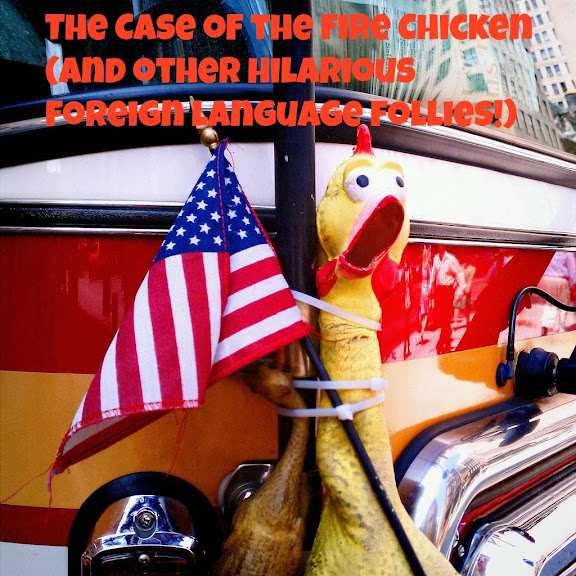As cliche as it may sound, some things really do get lost in translation.
In honor of the upcoming holiday, I’d like to introduce you to my favorite English to Chinese translation - the turkey! Not surprisingly, Thanksgiving isn’t the most celebrated holiday in Beijing, China: the bird of the hour is translated literally as the “fire chicken,” and though they are pretty hard to come by in these parts, I won’t let that get my holiday spirits down!

Photo cc: Timothy Krause, adapted by Wandering Educators
Here are a few other of my favorite translations!
French:
- “La Vache” Literal translation: The cow. Actual meaning: Dang it.
This is what you’ll be saying if you pass up any opportunity to study abroad in France.
(side note: The word for “cow” in Chinese, 牛(niu), is slang for “awesome.”)
Chinese:
- “吃素” (chi su) Literal translation: Eating vinegar. Actual meaning: Jealousy.
Don’t be “吃素” of your classmates studying abroad in China, check out programs and do it for yourself!
Spanish:
-In Spanish, “Chino/China” can be translated as both “curly haired” or “Chinese”
Maybe many of your international classmates in Mexico will be “chinos.” (Chinese? Curly haired? Both???)
Maori:
“Taumatawhakatangihangakoauauotamateaturipukakapikimaungahoronukupokaiwe-nuakit natahu” -- The longest place name still in use, this is the name of a hill in New Zealand.
“Hey, let’s go check out taumatawhakat....(5 minutes later)...-nuakit natahu.”
British English:
- “Pants” Literal translation: Pants. Actual meaning: Underwear.
Me- “Sorry, I didn’t pack the proper pants to play outside today.”
British classmate- “Gross.”
Japanese:
- “Karaoke” Literal translation: Empty orchestra. Actual meaning: Singing off-key to your old favorite songs, preferably in front of a large group of people.
What you’ll be spending your weekends doing when taking a study break in Japan.
Italian:
“Non si puo avere la botte piena e la moglie ubriaca” Literal Translation: You can't have a full barrel and a drunk wife. Actual meaning: You can’t have you cake and eat it too!
Unless you’re studying abroad that is!
Afrikaans:
- "Baia danke" Pronounced “Buy a donkey” Meaning: Thank you very much.
What you’ll be saying to your program advisors after spending a lovely semester in South Africa.
So while you are chowing down and enjoying some quality family time, I encourage you to share the story of the fire chicken and your friend in China who’s trying desperately to follow her aunt and uncle’s loving advice:
“Happy Thanksgiving Meggy! Try to imagine the lamb is actually turkey, the rice is mashed potatoes and the fish heads are actually BIG pieces of pumpkin pie!”
Maybe a turkey stir fry would be a more realistic fusion for Thanksgiving day (or as my British classmate quips, ‘Good Riddance day!’)
Have YOU experienced any amusing language gaps? Comment and share!
Want to study abroad in any of these locations - and learn some new languages? Check out all the opportunities at http://www.gooverseas.com/study-abroad/
#StudyAbroadBecause
Megan Lee is the Go! Overseas Editor for Wandering Educators. She's currently in China, possibly eating turkey.
